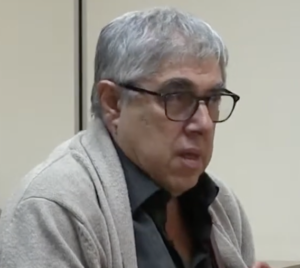UNIVERSITY – Mantelli: Anti-boycott professors are the majority, let’s make our voices heard
 About two thousand university professors throughout Italy have signed on to boycott relations with Israeli universities. About sixty or so teach at the University of Turin, which is at the center of national headlines after the academic Senate ended a call for cooperation projects with Israel as a consequence of a pro-Palestinian student group’s protest. “It should be made clear that the number of those in favor of the boycott is significant but not huge,” explained retired professor of contemporary history Brunello Mantelli. “After the decision of the Academic Senate of Turin, I was among the initiators of a document expressing an opposite thought, which now has 134 endorsements attributable to Turin university current and past faculty members. We are more than double the number of those in favor of terminating any relation with Israeli academia. The challenge is to be seen and heard more.” The counter-appeal “has also registered numerous external endorsements” and was repeatedly evoked during the meeting “A ‘new’ antisemitism in universities?” organized online by the Association of Alumni and Friends of the Jewish School of Turin (ASSET) and the Anavim association, with hundreds of participants and testimonies from Italy and Israel. The document denounced the danger that “the university, where we have built our teaching and research career and where many of us have also pursued our studies, will be besmirched by the blackmail of a minority who, with squadrist methods and unacceptable language, hold the majority of the academic Senate in check.” During the conference Mantelli denounced “the opportunistic attitude” of some rectors and university leadership in the face of anti-Israel campaigns promoted by groups such as Cambiare Rotta (Change course), which is anything “but a spontaneous organization,” the former professor stressed. “The legitimacy of its existence is not being question,” the historian pointed out, but it is important to understand “who is upstream, who finances this network.”
About two thousand university professors throughout Italy have signed on to boycott relations with Israeli universities. About sixty or so teach at the University of Turin, which is at the center of national headlines after the academic Senate ended a call for cooperation projects with Israel as a consequence of a pro-Palestinian student group’s protest. “It should be made clear that the number of those in favor of the boycott is significant but not huge,” explained retired professor of contemporary history Brunello Mantelli. “After the decision of the Academic Senate of Turin, I was among the initiators of a document expressing an opposite thought, which now has 134 endorsements attributable to Turin university current and past faculty members. We are more than double the number of those in favor of terminating any relation with Israeli academia. The challenge is to be seen and heard more.” The counter-appeal “has also registered numerous external endorsements” and was repeatedly evoked during the meeting “A ‘new’ antisemitism in universities?” organized online by the Association of Alumni and Friends of the Jewish School of Turin (ASSET) and the Anavim association, with hundreds of participants and testimonies from Italy and Israel. The document denounced the danger that “the university, where we have built our teaching and research career and where many of us have also pursued our studies, will be besmirched by the blackmail of a minority who, with squadrist methods and unacceptable language, hold the majority of the academic Senate in check.” During the conference Mantelli denounced “the opportunistic attitude” of some rectors and university leadership in the face of anti-Israel campaigns promoted by groups such as Cambiare Rotta (Change course), which is anything “but a spontaneous organization,” the former professor stressed. “The legitimacy of its existence is not being question,” the historian pointed out, but it is important to understand “who is upstream, who finances this network.”
